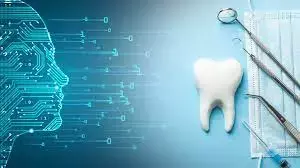- Home
- Medical news & Guidelines
- Anesthesiology
- Cardiology and CTVS
- Critical Care
- Dentistry
- Dermatology
- Diabetes and Endocrinology
- ENT
- Gastroenterology
- Medicine
- Nephrology
- Neurology
- Obstretics-Gynaecology
- Oncology
- Ophthalmology
- Orthopaedics
- Pediatrics-Neonatology
- Psychiatry
- Pulmonology
- Radiology
- Surgery
- Urology
- Laboratory Medicine
- Diet
- Nursing
- Paramedical
- Physiotherapy
- Health news
- Fact Check
- Bone Health Fact Check
- Brain Health Fact Check
- Cancer Related Fact Check
- Child Care Fact Check
- Dental and oral health fact check
- Diabetes and metabolic health fact check
- Diet and Nutrition Fact Check
- Eye and ENT Care Fact Check
- Fitness fact check
- Gut health fact check
- Heart health fact check
- Kidney health fact check
- Medical education fact check
- Men's health fact check
- Respiratory fact check
- Skin and hair care fact check
- Vaccine and Immunization fact check
- Women's health fact check
- AYUSH
- State News
- Andaman and Nicobar Islands
- Andhra Pradesh
- Arunachal Pradesh
- Assam
- Bihar
- Chandigarh
- Chattisgarh
- Dadra and Nagar Haveli
- Daman and Diu
- Delhi
- Goa
- Gujarat
- Haryana
- Himachal Pradesh
- Jammu & Kashmir
- Jharkhand
- Karnataka
- Kerala
- Ladakh
- Lakshadweep
- Madhya Pradesh
- Maharashtra
- Manipur
- Meghalaya
- Mizoram
- Nagaland
- Odisha
- Puducherry
- Punjab
- Rajasthan
- Sikkim
- Tamil Nadu
- Telangana
- Tripura
- Uttar Pradesh
- Uttrakhand
- West Bengal
- Medical Education
- Industry
AI based automated system improves diagnosis and prognosis prediction in dentistry: study

Artificial intelligence (AI) based automated system performance, development, and application is excellent in dentistry, according to a recent study published in the Journal of Dental Sciences.
Artificial intelligence (AI) has made deep inroads into dentistry in the last few years. The aim of this systematic review was to identify the development of AI applications that are widely employed in dentistry and evaluate their performance in terms of diagnosis, clinical decision-making, and predicting the prognosis of the treatment.
The literature for this paper was identified and selected by performing a thorough search in the electronic data bases like PubMed, Medline, Embase, Cochrane, Google scholar, Scopus, Web of science, and Saudi digital library published over the past two decades (January 2000–March 15, 2020).After applying inclusion and exclusion criteria, 43 articles were read in full and critically analyzed. Quality analysis was performed using QUADAS-2.
The Results of the study are as follows:
AI technologies are widely implemented in a wide range of dentistry specialties. Most of the documented work is focused on AI models that rely on convolutional neural networks (CNNs) and artificial neural networks (ANNs). These AI models have been used in detection and diagnosis of dental caries, vertical root fractures, apical lesions, salivary gland diseases, maxillary sinusitis, maxillofacial cysts, cervical lymph nodes metastasis, osteoporosis, cancerous lesions, alveolar bone loss, predicting orthodontic extractions, need for orthodontic treatments, cephalometric analysis, age and gender determination.
Thus, the researchers concluded that these studies indicate that the performance of an AI based automated system is excellent. They mimic the precision and accuracy of trained specialists, in some studies it was found that these systems were even able to outmatch dental specialists in terms of performance and accuracy.
Reference:
Developments, application, and performance of artificial intelligence in dentistry – A systematic review by Sanjeev B.Khanagar et al. published in the Journal of Dental Sciences.
https://doi.org/10.1016/j.jds.2020.06.019
Dr. Shravani Dali has completed her BDS from Pravara institute of medical sciences, loni. Following which she extensively worked in the healthcare sector for 2+ years. She has been actively involved in writing blogs in field of health and wellness. Currently she is pursuing her Masters of public health-health administration from Tata institute of social sciences. She can be contacted at editorial@medicaldialogues.in.
Dr Kamal Kant Kohli-MBBS, DTCD- a chest specialist with more than 30 years of practice and a flair for writing clinical articles, Dr Kamal Kant Kohli joined Medical Dialogues as a Chief Editor of Medical News. Besides writing articles, as an editor, he proofreads and verifies all the medical content published on Medical Dialogues including those coming from journals, studies,medical conferences,guidelines etc. Email: drkohli@medicaldialogues.in. Contact no. 011-43720751


